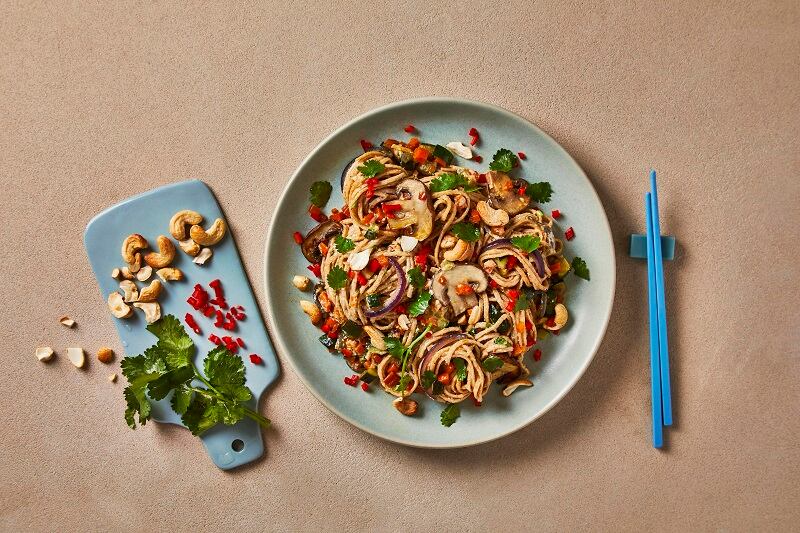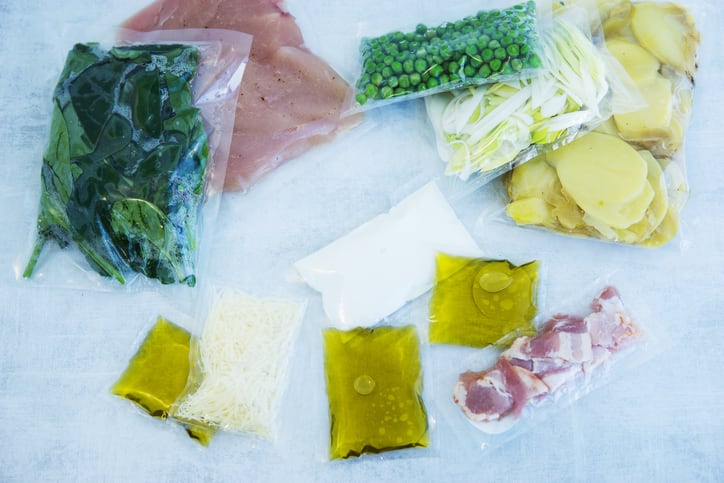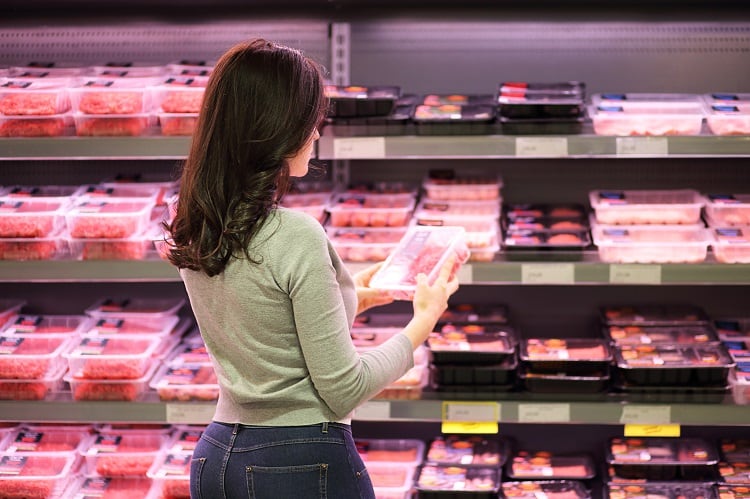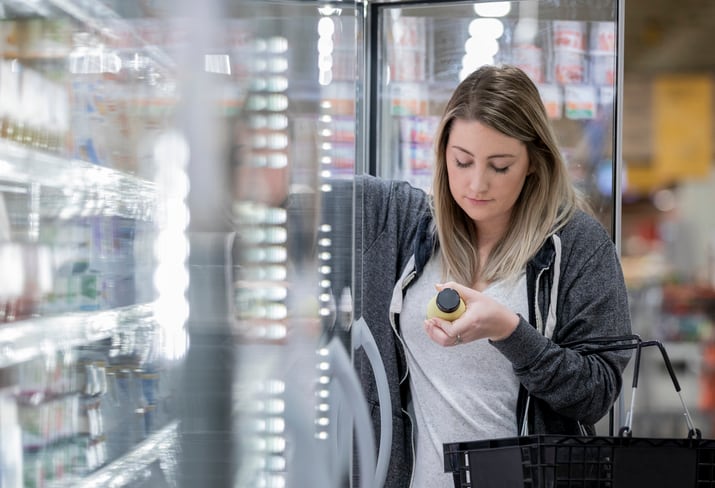This will see a selection of its 50+ recipes display the total carbon impact of the dish, with the option to swap out ingredients that have a higher carbon footprint before placing an order. Gousto claimed this is a ‘service no other recipe box offers’. It will also introduce greater seasonality to their menus, with food that requires less energy to produce and therefore, minimises carbon output further.
The announcement comes after research carried out by environmental services company Foodsteps compared the environmental impact of an average Gousto box versus the equivalent meals bought from a supermarket store. The results revealed that dinners from the recipe box firm produce 23% less carbon emissions than equivalent meals from conventional supermarkets.
According to the research, a short supply chain and reduced food waste contributes to each Gousto order saving 7kg of carbon dioxide (CO2e) emissions compared to the equivalent supermarket shop.
In 2020 - a record year for sales - ordering from Gousto saved 40,000 tonnes of CO2e, the equivalent to removing 4,905 cars from roads for a year, the researchers suggested.
Gousto also flagged the positive impact its model has on food waste. The company claimed that by sending fresh, precise ingredients for weekly dinners, there is almost zero food waste in the home.
It added food waste is kept to a minimum in the fulfilment centres thanks to Gousto’s use of technology. Fulfilment centres operate with less than 1% surplus food, it said, thanks to AI forecasting, which predicts weekly order volumes, helping to avoid over-ordering food from suppliers.
“Studies like this one are crucial for helping consumers make more environmentally friendly food choices and to inform the wider industry where improvements should be made to lower their carbon footprint,” said Dr Isaac Emery of Informed Sustainability Consulting, which verified the study. “Food waste has three times the climate cost of air travel, and Gousto’s innovative operation keeps waste to an absolute minimum. These findings show the food industry just how big an opportunity waste reduction is for meeting climate goals.”
Gousto’s CEO and Founder Timo Boldt added: “Gousto was born out of the vision to remove food waste from the system, a lot of which is created by inefficiencies in traditional grocery chains. By harnessing technology, we’ve achieved a significant 23% carbon emissions saving compared to a supermarket shop.
“Whilst we grow rapidly, we are committed to doing so with purpose towards our goal that every meal will leave the world better off.”
Packaging criticised
Other research has claimed that meal kits can cut food waste by more than two thirds, although the researchers criticised the heavy use of cardboard and packaging in the meal-kit sector. Last year, Gousto cut plastic in its boxes by 50% and pledged that by the end of 2022 all own branded packaging will be reusable, recyclable or compostable.
The move also comes as AI data researcher Spoonshot predicts that carbon labelling is a trend that’s ‘here to stay’.
“We’re seeing brands, retailers and restaurants starting to focus on on-pack carbon labelling as a way to promote transparency and spread awareness of our impact on the plant and appeal to environmental-conscious consumers,” it noted in a report about food trends. “Different ways of showcasing this environmental impact have emerged, but with references to emissions data or production processes.”
Spoonshot data, meanwhile, shows interest in conscious purchasing of food has grown by 551% among Gen Z. It noted Nestle’s new plant-based milk range, Wunda, calls out that it is carbon neutral on the front of the pack and is certified by the Carbon Trust. According to Nestle, the carbon neutral claim has been achieved through various measures including using renewable energy for production, reducing emissions during emissions during distribution, and investments in offsetting projects
Spoonshot now expects to see an increased demand for transparency from consumers “not only in terms of generic callouts, like sustainability, but for more specific information on how exactly a product is sustainable”.
Among the near 460 eco labels in use globally, over 120 different types are in use on food and drink products. However, “these different methods of calling out the eco-friendly nature of the products can be inconsistent and hard to understand for consumers”, the Spoonshot report added, which welcomed the arrival of the independent scoring system similar to Nutri-Score called Eco-Score to Europe. This score considers factors like the life cycle of the product, production, transport, packaging, origin of ingredients and then gives a single, easy to understand symbol for carbon impact.





